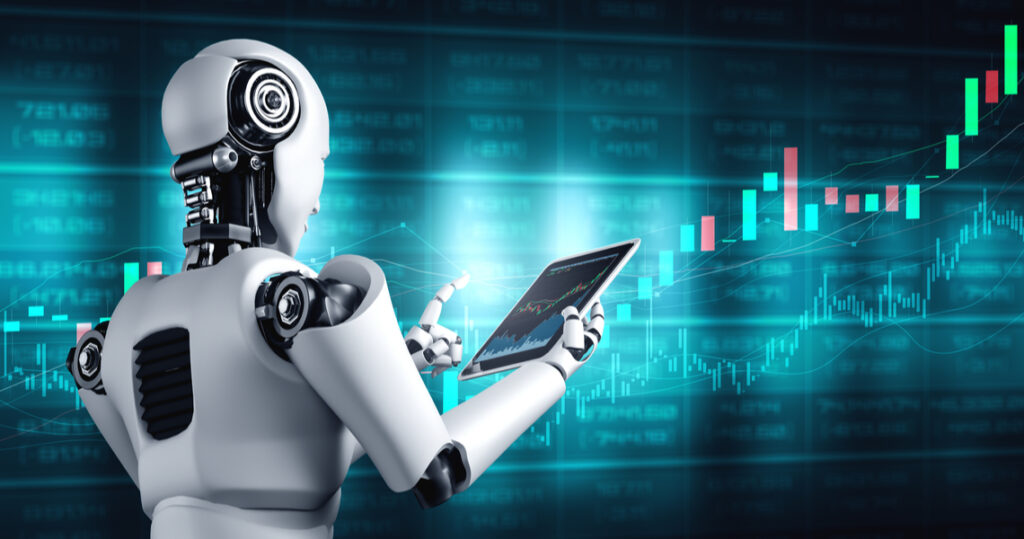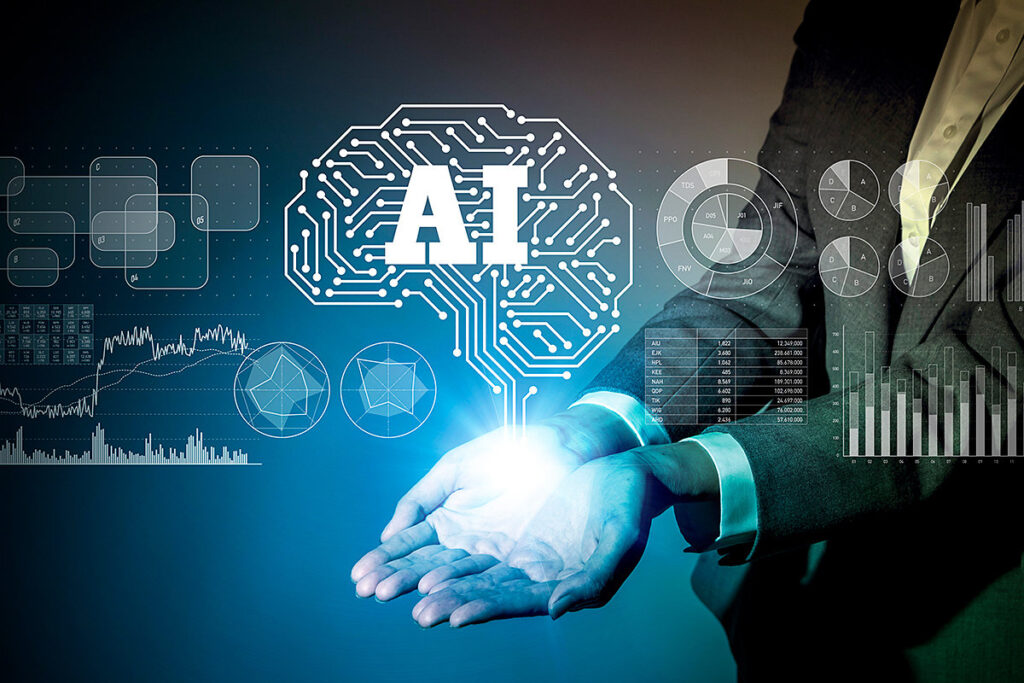The ability of a digital computer or a computer-controlled robot to do tasks that would normally be performed by intelligent beings is known as Artificial intelligence. The phrase is widely used to refer to a project aimed at creating systems with human-like cognitive abilities, such as the ability to reason, discern meaning, generalize, and learn from past experiences.
Since the invention of the digital computer in the 1940s, it has been proved that computers can be programmed to perform extremely complicated jobs with ease, such as finding proofs for mathematical theorems or playing chess.
Despite ongoing increases in computer processing speed and memory capacity, no programs have yet to equal human flexibility across broader areas or in activities requiring a great deal of common knowledge. However, certain programs have surpassed the performance levels of human specialists and professionals in completing specific tasks, and artificial intelligence in this limited sense can be found in applications as diverse as medical diagnosis, computer search engines, and voice or handwriting recognition.

Artificial intelligence (AI) is a machine-based imitation of human intellect that uses algorithms to replicate human mental knowledge and activities. Many mathematicians, scientists, and philosophers examined the notion of robots that solved problems and made judgments in the same way as people did in the 1950s. AI research has progressed in leaps and bounds over the years, and many of the systems developed are now in use on a daily basis. Artificial intelligence may be found in everything from virtual assistants like Siri to airplane autopilot.
Further AI study improves awareness and aids in the understanding of how beneficial or detrimental this technology may be. Many people wonder if artificial intelligence will grow to the point where it will have an advantage over humans, resulting in singularity. As a result, super-intelligence that are smarter than humans are evolving.
Rather than annihilating humanity, AI and humans might combine intelligence and collaborate for maximum efficiency.
AI containment protocols may be the answer to slowing the impacts of convergence and allowing humans to thrive from super-intelligence developed in a safe manner.
Over time, various ethical questions have arisen, both favorable and unfavorable, about the usage of artificial intelligence. People will feel more linked to artificial intelligence and the process of how AI is employed, which is a positive ethical effect of the transparency approach.
One of the advantages of artificial intelligence is its capacity to increase efficiency and productivity by replacing repetitive tasks with automated mechanisms and procedures. Of course, observers of the many artificial intelligence benefits and drawbacks can argue that this same benefit has a negative side in that people who were previously responsible for completing these monotonous duties may lose their jobs. However, one of the benefits of AI that is sometimes neglected in this debate is its ability to create jobs. While AI may displace low-skilled occupations, it may also provide high-skilled job possibilities across the economy. With the increased demand for data scientists, system architects, and artificial intelligence engineers, we can already see this to some extent. Previously, we discussed how artificial intelligence is being used in the commercial sector to streamline work and provide profits.
For example, AI applications in healthcare are easing the management of medical records and other data, automating repetitive processes, and allowing cost and process efficiencies.AI is also enabling digital and virtual consultations, precision medicine, and the development of novel medications and treatment regimens in other areas. Manufacturing, transportation, municipal administration, and agriculture are just a few of the domains where AI is being used. Autonomous or self-driving automobiles, as well as smart traffic management systems, have the potential to minimize traffic congestion and accidents, which are attributed to human error in 95 percent of cases.Manufacturers and farmers can boost productivity and make better use of their resources with the help of automation and data analytics. Predictive and prescriptive analytics for preventative maintenance, as well as better strategic planning, are examples of how AI technology is expanding the power and reach of data analysis across all industries.
One ethical concern with this outcome is that the developers do not see the need to be transparent about artificial intelligence’s workings with the rest of the world.They may be hesitant or even refuse to disclose information. Another ethical issue with this outcome is that people will continue to make inadequate decisions about the use of artificial intelligence since they do not believe they have gotten a better knowledge of what AI is.The creation of a confinement protocol has a bad ethical effect in that developers will not be able to fully enclose the artificial intelligence in its own hardware. As a result, the AI is not prevented from exchanging data with other networks.
An ethical issue with this outcome would be that the creators lack the knowledge necessary to properly contain and govern artificial intelligence. This could be the reason why a working confinement procedure has yet to be perfected.
Another ethical dilemma associated with this scenario is that artificial intelligence will be able to learn without human input, and with the exchange of knowledge, AI will become smarter, and humans will no longer be able to govern the systems.

To summarize, AI has a lengthy history of concepts and research that have resulted in the development of different technologies. Many of the devices we use on a daily basis are designed with intelligent software and algorithms, and artificial intelligence appears to be the wave of the future. Further research on this topic is critical in order to help people obtain a better understanding of this rapidly growing phenomenon, which could lead to more informed decisions about whether AI is good or hazardous to humans. Because AI affects everyone on the planet, the rise of artificial intelligence is a worldwide socioeconomic issue for everyone.
Artificial intelligence has made numerous advances, and as projects improve, more data and in-depth learning are required for AI to function optimally. Artificial intelligence can learn without human input thanks to deep learning and neural networks, which replicate the organic structure of the human brain. As a result of this singularity, AI may evolve into super-intelligence that are smarter than humans. Instead of annihilating humanity, AI and humans can combine intelligence and collaborate to achieve optimum efficiency. AI confinement mechanisms will be the answer to slowing the impacts of singularity and allowing humans to profit securely from the super-intelligence that emerge.


